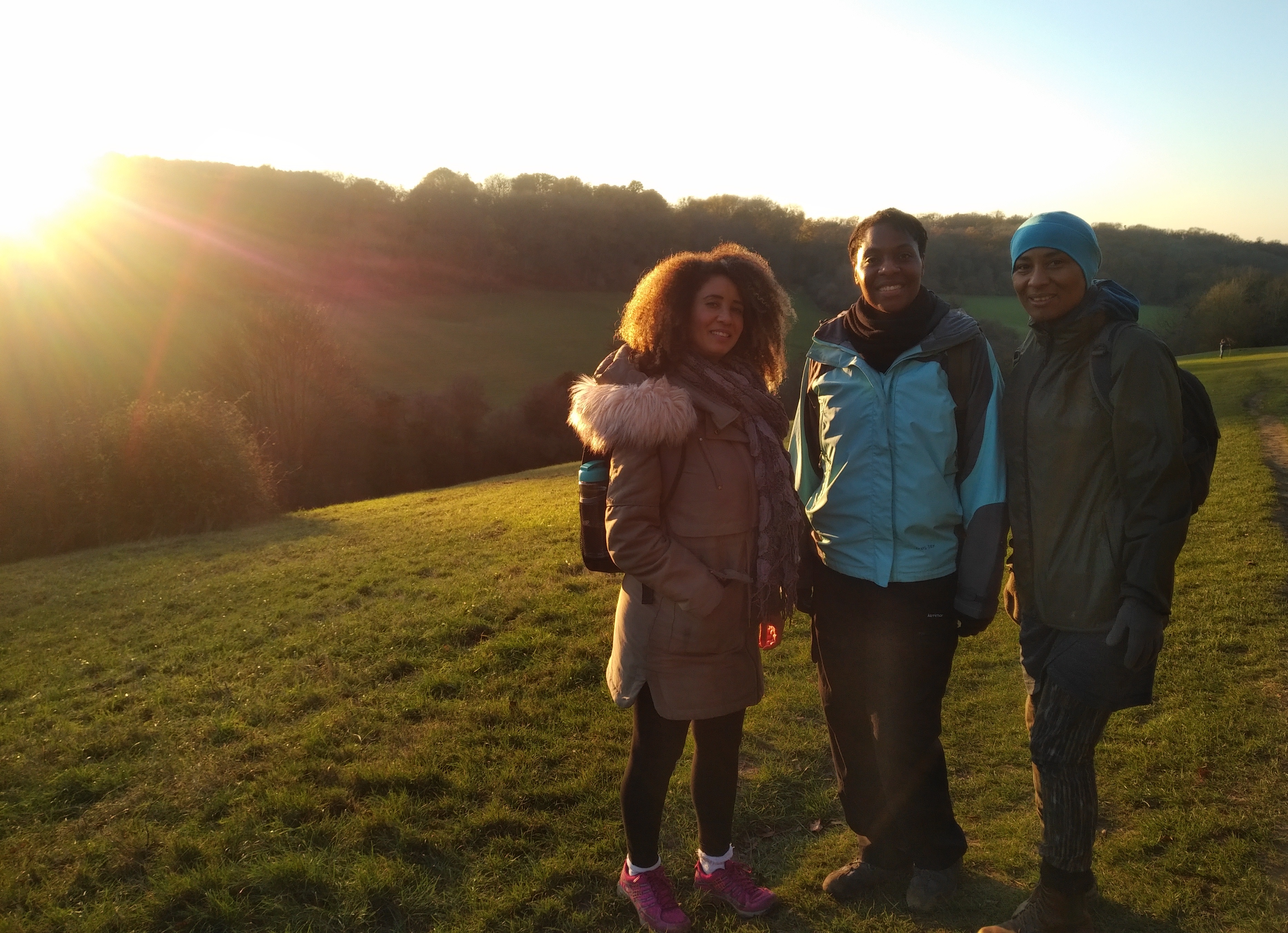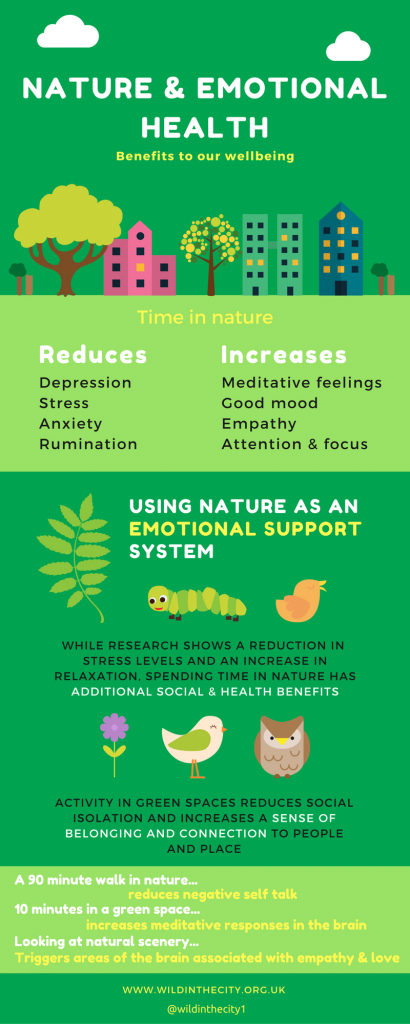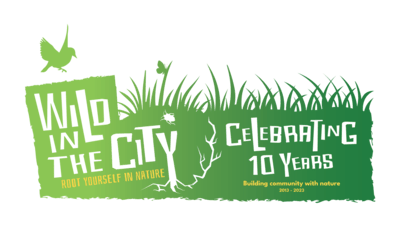
We promote Nature as an antidote to the stresses of urban living.
By 2030 over 60% of the worlds populations will live in cities, in the UK over 90% of the population will live in urban areas. City lifestyles tend to be more fast paced, tech driven and indoor orientated, fragmenting our social lives and leading us to being less connected to each other and the natural world.
Urban environments can have a detrimental impact on our health. Research shows that greyscapes trigger areas of the brain associated with fear and anger whereas greenscapes trigger those associated with love and empathy, making a big difference to our quality of life.
Nature is vital for our emotional health, it’s capacity to reduce stress, depression and anxiety is an essential antidote to stressful and often isolated city lifestyles. A relationship with the natural world brings balance and a sense of belonging regardless of what is going on in our social worlds.
Nature is a free health service enhancing our wellbeing just by spending time within natural settings and getting away from the hustle and bustle. Being close to nature is one of the easiest ways we can attend to self care. London parks already bring £370 million in mental health savings; people who interact with green spaces most frequently have improved life expectancy and improved physical and emotional wellbeing.
Seeking out and creating more nature within cities is essential for ensuring they remain liveable places, not just survivable spaces.
BBC, Cities: Nature’s New Wild
The BBC’s Cities: Nature’s New Wild is a three part series, narrated by Daniel Kaluuya, looking at how wildlife has responded to the spread of human habitats throughout the world, with episodes on Residents, Commuters and Outcasts.
Episode 3, Outcasts features a section on London National Park City and the importance of nature to urban resident’s well-being. As well as featuring our Director, Beth Collier, the script for this section uses her research on the value of nature to human health.
Wild in the City aims to foster resilience in individuals and communities by introducing people to the health benefits of engaging with nature.
Covid-19, Nature and Well-being
We have been building a picture of the role that nature has played in our lives during lockdown. Initial analysis clearly shows that spending time in nature helped many of us cope with change, uncertainty and anxiety. The survey for the research period has now closed.
 Emotional Wellbeing
Emotional Wellbeing
* Nature is a wonderful emotional support system, we’re recommending a 15 minute conversation with nature everyday. Whether its during an activity, walking or simply sitting enjoying the feel of the wind against your skin, being mindful.
* We believe that having time out in nature is the perfect antidote to fast paced city living, helping us to relax, reinvigorate, refocus and be resilient.
Sense of belonging
We’re building a community of people who gather in nature to have fun, learn and feel good.
Learning traditional skills for living comfortably in nature, increases self-confidence and creates a sense of connection to communities past and present, generating a sense of belonging in the sharing and passing down of skills and knowledge. Time spent relaxing around the fire induces a reflective atmosphere which encourages honest and open conversation which is cathartic.
Wild in the City’s activities help individuals to feel more connected to people and places, developing individual wellbeing and community and family cohesion.
Research
Research shows what many of us already know through experience, that nature has health promoting characteristics. Neuroscience has proven that spending time in nature;
* reduces stress and lowers cortisol
* reduces anxiety and depression
* improves attention and focus
* reduces rumination
* triggers area of brain associated with empathy/stability/love
* induces meditative feelings
Physical Wellbeing
Our work takes place in parks and woods, supporting people to spend more time being physically active in settings which are beneficial to their health.
Tasks such as making things from natural materials mean that people focus in a meditative way on what they are doing, reducing stress whilst still being productive. Bushcraft involves some degree of lifting, carrying, cutting and sawing providing physical exertion which can be gentle or vigorous, giving participants a workout in a woodland gym!
The woodland gym (calories burnt per hour);
| Splitting wood | 500 calories |
| Sawing | 322/500 calories |
| Felling trees | 371 calories |
| Clearing land/hauling branches | 280 calories |
| Bird watching | 175 calories |
| Butchery | 210 calories |
| Smoking Fish | 161 calories |
